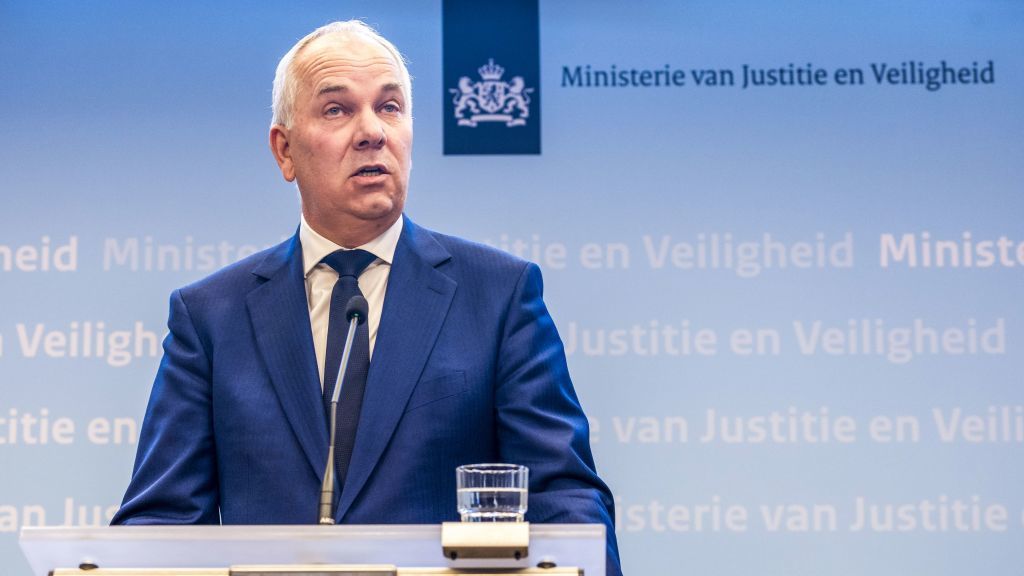Netherlands urges citizens to prepare survival kits in case hackers target critical infrastructure
The latest campaign from the national coordinator for security echoes the growing concern in the UK government over serious cyber attacks


Dutch citizens have been urged to prepare emergency disaster kits in case a cyber attack or natural disaster hits the country.
The campaign to prepare the kits is being pushed by the country's national coordinator for security and counterterrorism (NCTV) Pieter-Jaap Aalbersberg. He told local media that citizens should be able to survive for two days without water, electricity, or gas in the event that critical infrastructure is compromised.
Dutch citizens were last encouraged to prepare disaster kits back in 2009 but Aalbersberg said the latest awareness campaign was driven partly due to the number of cyber attacks across the globe is increasing.
“The Netherlands is extra vulnerable,” said Aalbersberg to AD. Digital technology in the Netherlands is advanced and many systems rely on it, he said. There’s also a lack of an analogue option to fall back on as a backup.
Aalbersberg also said that as the country has experienced technological development, its resistance to attacks hasn’t developed at the same rate. “The gap between threat and resistance is still too wide,” he said.
The coordinator also warned that startups are being targeted by China and Russia, since larger companies have better digital security. He gave an example of two Russian spies trying to take away Dutch tech, but went to startups instead of larger companies. Aalbersberg said this was because startups are “mainly busy with other things” like putting a product on the market, and view security as something that comes after this phase.
Society also needs to increase its shock resistance, according to the security chief, especially since disaster preparation hasn’t been seen in the Netherlands for a long time, but was common during the Cold War era.
Get the ITPro daily newsletter
Sign up today and you will receive a free copy of our Future Focus 2025 report - the leading guidance on AI, cybersecurity and other IT challenges as per 700+ senior executives
The Netherlands appears to be getting citizens ready in case a cyber attack plunges the country into a blackout, clearly worried about the rise in ransomware and how other countries have been brought to their knees after being hit by these kinds of attacks.
The seriousness of cyber attacks is also taking up officials’ time in the UK, where members of the Cobra crisis management team are dedicating more time to ransomware incidents, according to a report from The Record.
The majority of its meetings are reportedly focused on ransomware attacks in the country, with some saying this demonstrates the government hasn't made substantial progress in neutralising the threat of ransomware.
RELATED RESOURCE

Getting board-level buy-in for security strategy
Why cyber security needs to be a board-level issue
Cyber attacks on critical infrastructure and entire nations have been hugely impactful in recent years. In May 2021, for example, a ransomware attack shut down one of the main fuel pipelines in the US.
The company that owns the pipeline, Colonial Pipeline, is responsible for 45% of the fuel supplies on the east coast of the country. It was forced to suspend 5,500 miles of pipeline after it fell victim to the cyber attack, and eventually paid hackers $4.4 million to regain access to its systems, although around half was recovered by the FBI.
More recently, in May 2022, Costa Rica declared a state of emergency after being hit by a Conti ransomware attack. The attack hit the country’s treasury, which affected its digital services and forced it to operate manually. Conti demanded a $10 million ransom for the government regain access to its systems.
Zach Marzouk is a former ITPro, CloudPro, and ChannelPro staff writer, covering topics like security, privacy, worker rights, and startups, primarily in the Asia Pacific and the US regions. Zach joined ITPro in 2017 where he was introduced to the world of B2B technology as a junior staff writer, before he returned to Argentina in 2018, working in communications and as a copywriter. In 2021, he made his way back to ITPro as a staff writer during the pandemic, before joining the world of freelance in 2022.
-
 Why keeping track of AI assistants can be a tricky business
Why keeping track of AI assistants can be a tricky businessColumn Making the most of AI assistants means understanding what they can do – and what the workforce wants from them
By Stephen Pritchard
-
 Nvidia braces for a $5.5 billion hit as tariffs reach the semiconductor industry
Nvidia braces for a $5.5 billion hit as tariffs reach the semiconductor industryNews The chipmaker says its H20 chips need a special license as its share price plummets
By Bobby Hellard
-
 Cleo attack victim list grows as Hertz confirms customer data stolen – and security experts say it won't be the last
Cleo attack victim list grows as Hertz confirms customer data stolen – and security experts say it won't be the lastNews Hertz has confirmed it suffered a data breach as a result of the Cleo zero-day vulnerability in late 2024, with the car rental giant warning that customer data was stolen.
By Ross Kelly
-
 ‘Phishing kits are a force multiplier': Cheap cyber crime kits can be bought on the dark web for less than $25 – and experts warn it’s lowering the barrier of entry for amateur hackers
‘Phishing kits are a force multiplier': Cheap cyber crime kits can be bought on the dark web for less than $25 – and experts warn it’s lowering the barrier of entry for amateur hackersNews Research from NordVPN shows phishing kits are now widely available on the dark web and via messaging apps like Telegram, and are often selling for less than $25.
By Emma Woollacott
-
 Healthcare systems are rife with exploits — and ransomware gangs have noticed
Healthcare systems are rife with exploits — and ransomware gangs have noticedNews Nearly nine-in-ten healthcare organizations have medical devices that are vulnerable to exploits, and ransomware groups are taking notice.
By Nicole Kobie
-
 Alleged LockBit developer extradited to the US
Alleged LockBit developer extradited to the USNews A Russian-Israeli man has been extradited to the US amid accusations of being a key LockBit ransomware developer.
By Emma Woollacott
-
 February was the worst month on record for ransomware attacks – and one threat group had a field day
February was the worst month on record for ransomware attacks – and one threat group had a field dayNews February 2025 was the worst month on record for the number of ransomware attacks, according to new research from Bitdefender.
By Emma Woollacott
-
 CISA issues warning over Medusa ransomware after 300 victims from critical sectors impacted
CISA issues warning over Medusa ransomware after 300 victims from critical sectors impactedNews The Medusa ransomware as a Service operation compromised twice as many organizations at the start of 2025 compared to 2024
By Solomon Klappholz
-
 The UK cybersecurity sector is worth over £13 billion, but experts say there’s huge untapped potential if it can overcome these hurdles
The UK cybersecurity sector is worth over £13 billion, but experts say there’s huge untapped potential if it can overcome these hurdlesAnalysis A new report released by the DSIT revealed the UK’s cybersecurity sector generated £13.2 billion over the last year
By Solomon Klappholz
-
 Warning issued over prolific 'Ghost' ransomware group
Warning issued over prolific 'Ghost' ransomware groupNews The Ghost ransomware group is known to act fast and exploit vulnerabilities in public-facing appliances
By Solomon Klappholz